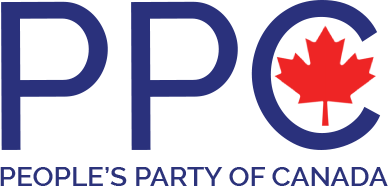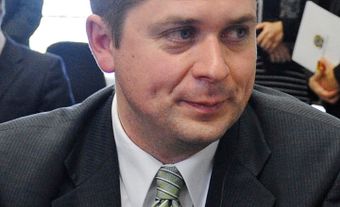Maxime Bernier, businessman, lawyer, politician, leader of the People’s Party of Canada 2018–present (born 18 January 1963 in St-Georges-de-Beauce, Quebec). Maxime Bernier served as Member of Parliament for Beauce from 2006 to 2019. He was a prominent Cabinet minister in the Conservative government of Stephen Harper. After narrowly losing the Conservative leadership race to Andrew Scheer in 2017, Bernier left the party in 2018 and formed the far-right People’s Party of Canada (PPC). Bernier opposes government intervention in society, culture, the economy. He also criticizes multiculturalism and increased immigration as well as government policies to fight climate change.

Maxime Bernier, 2017. Bernier, formerly a member of the Conservative Party, founded the People’s Party of Canada in 2018.
Conservative MP and Cabinet Minister
Maxime Bernier worked as a lawyer for about 15 years before entering politics. He won the riding of Beauce, Quebec, as a Conservative candidate in the 2006 federal election. This was the same riding held by his father, Gilles Bernier, from 1984 to 1997 (first as a Progressive Conservative candidate and then, from 1993, as an Independent).
Maxime Bernier served as Minister of Industry (2006–07), Minister of Foreign Affairs (2007–08) and Minister of State for Small Business and Tourism (2011–15) in the Cabinet of Prime Minister Stephen Harper.
After the Conservatives were defeated in 2015 by Justin Trudeau’s Liberals, Bernier became Critic for Innovation, Science and Economic Development.
Conservative Leadership Bid
In 2016, Bernier announced that he would run for election as leader of the Conservative Party. Bernier finished a close second to Andrew Scheer at the leadership convention in May 2017. However, the vote had many irregularities. There were far more votes cast than there were voters. The ballots were also destroyed without being certified by an accounting firm. Bernier disputed the results immediately and bitterly. It later came to light that a contingent of dairy farmers had temporarily joined the party specifically to vote against him and his anti- supply management platform. This tipped the vote to Scheer.
Although Scheer appointed Bernier to his “shadow cabinet,” their relationship was strained. Bernier’s public statements condemning supply management, tariffs and multiculturalism conflicted with official Conservative policy. In June 2018, Scheer removed Bernier from his role in the shadow cabinet. This was triggered by Bernier’s decision to post online an excerpt about supply management from his unpublished book, Doing Politics Differently: My Vision for Canada.
People’s Party of Canada (PPC)
In August 2018, Bernier announced that he was leaving the Conservative Party, which he felt was “too intellectually and morally corrupt to be reformed.” He founded the People’s Party of Canada (PPC) in September 2018. The party has been described as libertarian and populist and has been linked to white supremacists and the far right.
Bernier stood for re-election as the PPC candidate for Beauce, Quebec, in the October 2019 federal election. However, he was defeated by Conservative candidate Richard Lehoux, a former dairy farmer, who won the riding by more than 6,000 votes.
2021 Federal Election
During the 2021 election, Maxime Bernier and the PPC notably campaigned against government policies related to the COVID-19 pandemic. The PPC managed to increase its vote share substantially from 2 per cent in 2019 to 5 per cent in 2021. Bernier failed to win re-election in Beauce. He was again defeated by Richard Lehoux, but by a much larger margin of more than 17,000 votes. However, the PPC succeeded in siphoning support from the Conservative Party, especially in Western Canada, where Bernier spent the majority of the campaign.
Political Ideology
Bernier has identified his fundamental values as: individual freedom, personal responsibility, fairness and respect. He supports “small government” and opposes government intervention in Canadian society, culture and the economy. This includes opposition to corporate welfare, tariffs and supply management. He has criticized multiculturalism, called for a reduction in immigration and supported the imposition of a values test for new immigrants. Bernier has also denied the link between human activity and climate change and has criticized what he calls “climate change alarmism.” He opposes government policies aimed at combatting climate change.

The People’s Party of Canada was founded in 2018.

 Share on Facebook
Share on Facebook Share on X
Share on X Share by Email
Share by Email Share on Google Classroom
Share on Google Classroom



